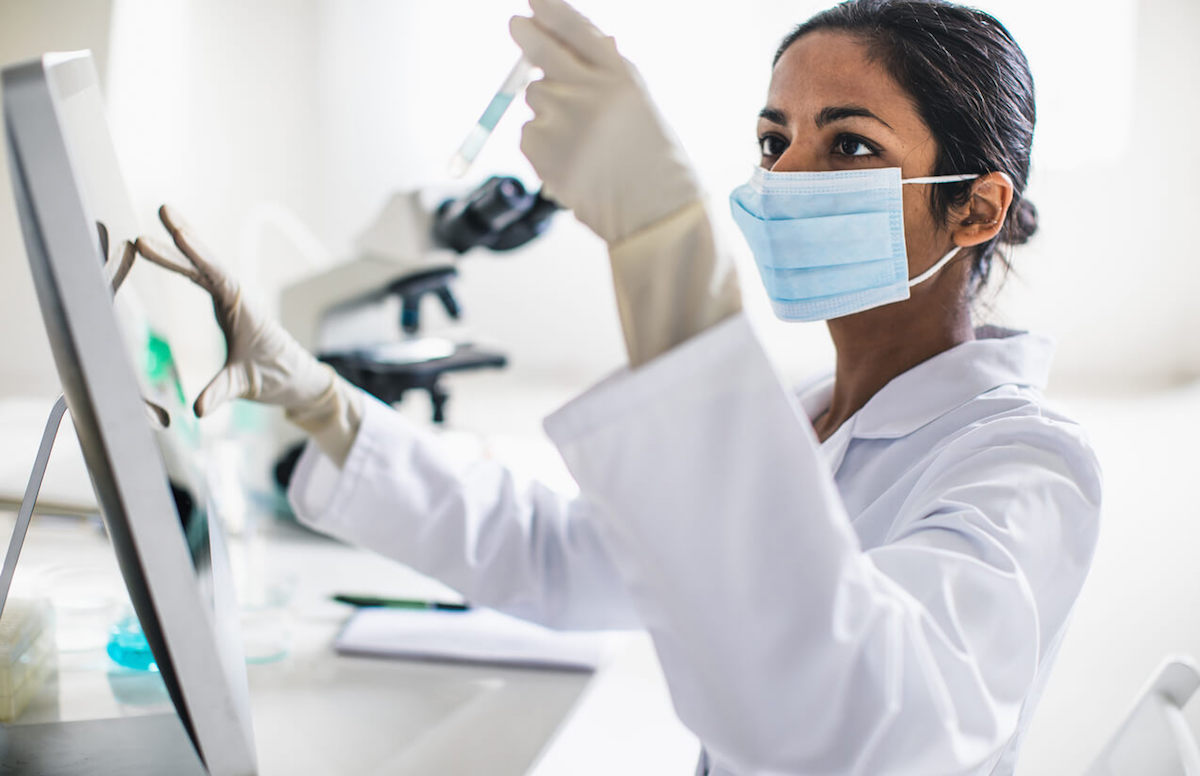The power of science has never been more evident than it is right now. Just a year ago, a new virus was starting to circulate aggressively in a health clinic in Seattle, Washington. The United States population was left wondering what a potential migration of the virus across the country would look like.
Within just a few weeks, the virus had spread across the county to New England, and the talk around town concerned whether businesses and activities would close. In those first few weeks of March 2020, we had no idea what was in store.
Recent Biotech Advances Demonstrate the Power of Science
Around the same time the U.S. went into lockdown, the CDC released its SARS-CoV-2 molecular diagnostic test to the world. This feat was achieved at lighting speed, considering the standard turnaround time for a diagnostic test is one to five years—highlighting the amazing power of science. Over the next several months, more tests entered the market in an effort to reopen aspects of the country. Without those tests, the University and country wouldn’t have been able to open as safely as they did.
Soon after the diagnostic tests were in-market, the first pending EUA approvals for Pfizer/BioNTech and Moderna’s vaccines were announced, and by mid-December, the first shots were administered. These vaccines were the fastest ever developed and using a modality—mRNA—never before used. In fact, over the last months, as the number of vaccinated individuals has increased, the number of COVID-19 cases has decreased, highlighting the effectiveness of vaccines—yet another clear demonstration of the power of science.
The pandemic has highlighted two primary things for scientists: We still have a lot to learn and a lot of work to do.
Diagnostic tests, although generally good, could be much better. There are opportunities to develop new therapies in all aspects of healthcare. As a matter of fact, gene and cell therapies will give us some of our best opportunities to cure numerous diseases. There is also an opportunity to better educate the communities around us and allow us to be ahead for the next pandemic, whether or not it comes.
Over the next several years or possibly decades, we will enter the age of the bioeconomy—an economy driven by innovation in the life sciences from alternative foods to alternative energy sources. To support this type of bioeconomy, a highly trained workforce is required. As such, now is the right time for biotech professionals to upskill to meet the upcoming demands of this ever-evolving industry.
Preparing for the Future Bioeconomy
The European Commission defines bioeconomy as “the production of renewable biological resources and the conversion of these resources and waste streams into value-added products, such as food, feed, bio-based products, and bioenergy. Its sectors and industries have strong innovation potential due to their use of a wide range of sciences, enabling and industrial technologies, along with local and tacit knowledge.” The international space station, as well as numerous references and movies that highlight the bio-bubble concept are examples of a bioeconomy in action.
A crucial part of a successful bioeconomy will be a skilled workforce that will need to be trained differently than any professional before. These professionals will need interdisciplinary skills ranging from biology, engineering, computer science, data analytics, business, regulatory, quality, and many more high-level topics. Specific skills, such as cell culture and aseptic technic, will be beneficial. However, the most important skills will be critical thinking, problem-solving, and the ability to work in a dynamic, fast-paced, and flexible environment.
Earning an Experiential Master’s in Biotechnology
To address the rapidly changing needs of biotechnology (and specifically the bioeconomy), Northeastern University’s College of Science has developed a new Experiential Master’s in Biotechnology. This new program is designed as an accelerated, one-year (12 month), masters program at about one-third the cost of a traditional master’s (2-year) program.
However, the true differentiator of this new master’s program is that it is hugely experiential, meaning students participate in applicable real-world opportunities from their first day in the program. Students start with small, industry-driven projects that crescendo over the first two semesters and culminate with a co-op and a capstone course in the final semester that builds a portfolio of the student’s experiences. These experiences, or projects, help train students in the specific technical, problem-solving, and critical thinking skills that are needed for success in the industry.
As the industry is evolving rapidly, there is an immediate demand for a trained workforce. This new experiential program aims to bring students into the job market a year earlier than their peers. To learn how Northeastern can prepare you to lead organizations through these future scientific breakthroughs, explore our program page to learn more.






Related Articles
Compliance Specialists: Who They Are and What They Earn
Science or Science Fiction? The Future of Personalized Medicine
In-Demand Biotechnology Careers Shaping Our Future